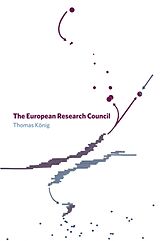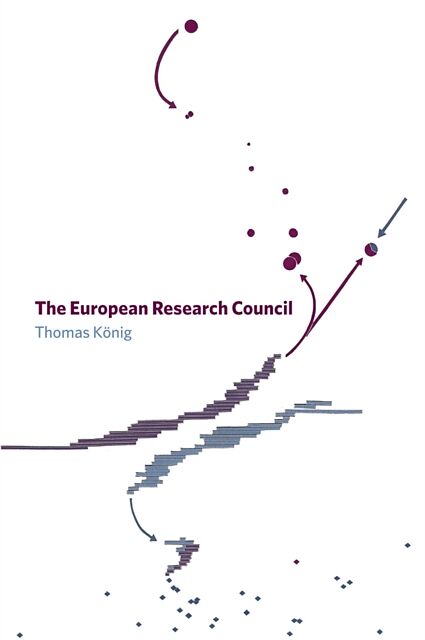The European Research Council
Einband:
Fester Einband
EAN:
9780745691244
Untertitel:
Englisch
Genre:
Pädagogik
Autor:
Thomas König
Herausgeber:
Wiley
Auflage:
1. Auflage
Anzahl Seiten:
240
Erscheinungsdatum:
30.12.2016
ISBN:
978-0-7456-9124-4
Informationen zum Autor Thomas König is a Senior Researcher at the Vienna Institute for Advanced Studies Klappentext Founded in 2007 to fund basic research, the European Research Council (ERC) has become the most revered instrument in European science policy and one of the world's most important focal points for the funding of scientific research. Its grants are much sought-after by researchers and scholars and it is widely considered to have had a major impact on research communities and institutions across Europe. How did this remarkable organization, the creation of which was widely regarded as a 'miracle', come into being, what has it achieved and how is it likely to adapt in the face of current and future challenges?This book is the first comprehensive history of the creation and development of the ERC. Drawing on first-hand knowledge, Thomas König gives a detailed account of how a group of strong-minded European scientists succeeded in creating the ERC by pushing for a single goal: more money for scientific research with fewer strings attached. But he also shows how this campaign would have failed had it not been taken up by skilful officials of the European Commission, who recognized the ERC as a way to gain more influence in shaping European science policy. Once established, the ERC developed a carefully crafted self-image that emphasized its reliance on peer review and its differences from all other EU research programmes.In addition to analysing the creation and development of the ERC, this book critically examines its achievements and its claims. It also explores the implications of the rise of the ERC and the challenges and threats that it faces today, engaging with broader questions concerning the relationship of politics, science, and money at the beginning of the 21st century. It will be essential reading for all scholars and students of science policy, for decision-makers and administrators across Europe, and for researchers and academics looking to engage with and understand the ERC. Zusammenfassung Founded in 2007 to fund basic research, the European Research Council (ERC) has become the most revered instrument in European science policy and one of the world s most important focal points for the funding of scientific research. Inhaltsverzeichnis List of tables and figuresAbbreviationsAcknowledgementsPreface1. 'The future of scientific research in Europe'2. 'A radical proposal'2.1 '"Not-yet-born" sector actors'2.2 'Maybe it is time for a European Research Council in some form?'2.3 'Everybody is talking about something different'3. 'European Value Added'3.1 'Clear ownership'3.2 'Lack of sufficient competition'3.3 'Credible to the scientific world'4. 'The most promising opportunities'4.1 'What the ERC will need'4.2 'Internal policies'5. 'State of crisis'5.1 'Deep Commission'5.2 'We are not there yet'5.3 'Flawed recommendation'6. 'A rather conventional system'6.1 'A broader palette'6.2 'To promote interdisciplinarity and breadth of viewpoints'6.3 'Preventive and dissuasive actions'7. 'Wide-ranging effects'7.1 'Justifying to stakeholders'7.2 'i-conomy'7.3 'Symbolic value'8. Summary and personal postscriptAnnex 1: List of archival collections usedAnnex 2: List of interviews...
Autorentext
Thomas König is a Senior Researcher at the Vienna Institute for Advanced Studies
Klappentext
Founded in 2007 to fund basic research, the European Research Council (ERC) has become the most revered instrument in European science policy and one of the world's most important focal points for the funding of scientific research. Its grants are much sought-after by researchers and scholars and it is widely considered to have had a major impact on research communities and institutions across Europe. How did this remarkable organization, the creation of which was widely regarded as a 'miracle', come into being, what has it achieved and how is it likely to adapt in the face of current and future challenges? This book is the first comprehensive history of the creation and development of the ERC. Drawing on first-hand knowledge, Thomas König gives a detailed account of how a group of strong-minded European scientists succeeded in creating the ERC by pushing for a single goal: more money for scientific research with fewer strings attached. But he also shows how this campaign would have failed had it not been taken up by skilful officials of the European Commission, who recognized the ERC as a way to gain more influence in shaping European science policy. Once established, the ERC developed a carefully crafted self-image that emphasized its reliance on peer review and its differences from all other EU research programmes. In addition to analysing the creation and development of the ERC, this book critically examines its achievements and its claims. It also explores the implications of the rise of the ERC and the challenges and threats that it faces today, engaging with broader questions concerning the relationship of politics, science, and money at the beginning of the 21st century. It will be essential reading for all scholars and students of science policy, for decision-makers and administrators across Europe, and for researchers and academics looking to engage with and understand the ERC.
Inhalt
List of tables and figures Abbreviations Acknowledgements Preface 1. 'The future of scientific research in Europe' 2. 'A radical proposal' 2.1 '"Not-yet-born" sector actors' 2.2 'Maybe it is time for a European Research Council in some form?' 2.3 'Everybody is talking about something different' 3. 'European Value Added' 3.1 'Clear ownership' 3.2 'Lack of sufficient competition' 3.3 'Credible to the scientific world' 4. 'The most promising opportunities' 4.1 'What the ERC will need' 4.2 'Internal policies' 5. 'State of crisis' 5.1 'Deep Commission' 5.2 'We are not there yet' 5.3 'Flawed recommendation' 6. 'A rather conventional system' 6.1 'A broader palette' 6.2 'To promote interdisciplinarity and breadth of viewpoints' 6.3 'Preventive and dissuasive actions' 7. 'Wide-ranging effects' 7.1 'Justifying to stakeholders' 7.2 'i-conomy' 7.3 'Symbolic value' 8. Summary and personal postscript Annex 1: List of archival collections used Annex 2: List of interviews

Leider konnten wir für diesen Artikel keine Preise ermitteln ...
billigbuch.ch sucht jetzt für Sie die besten Angebote ...
Die aktuellen Verkaufspreise von 6 Onlineshops werden in Realtime abgefragt.
Sie können das gewünschte Produkt anschliessend direkt beim Anbieter Ihrer Wahl bestellen.
Loading...
Die aktuellen Verkaufspreise von 6 Onlineshops werden in Realtime abgefragt.
Sie können das gewünschte Produkt anschliessend direkt beim Anbieter Ihrer Wahl bestellen.
| # | Onlineshop | Preis CHF | Versand CHF | Total CHF | ||
|---|---|---|---|---|---|---|
| 1 | Seller | 0.00 | 0.00 | 0.00 |
